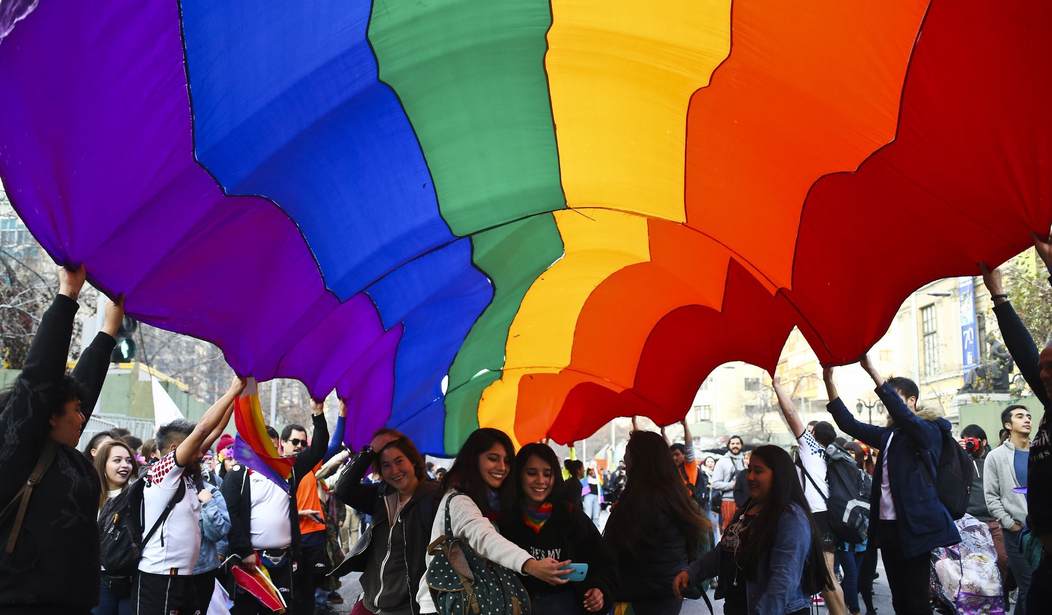Jack Phillips may be able to bake cakes as his conscience dictates, but the conflict between religious conscience rights and the expanding rights of LGBT Americans is ongoing. Exhibit A: the Equality Act pending before Congress, which would amend the Civil Rights Act of 1964 by adding “sexual orientation” and “gender identity” as protected classes, forcing tens of millions of Americans who hold traditional views of marriage and sexuality to conform to a new sexual worldview or face consequences. As Congress considers the Equality Act in the coming days, it’s instructive to consider the similarities between LGBT ideologues of today and the equally dogmatic 17th century Puritans; it’s possible past lessons may provide a roadmap to peaceful resolution to today’s impasse between America’s conservative religious citizens and LGBT activists.
Alexis de Tocqueville in Democracy in America told us the Puritans left England due to severe persecution for their beliefs, and they searched for a new land where they could live “…as they wished and pray to God in liberty.” Unfortunately, once the Puritans established their lives in New England, they eventually began persecuting citizens in the very ways they had escaped. Puritans in Connecticut passed the Code of 1650 that imposed fines and punishment which, per Tocqueville, “repeatedly intruded upon the realm of conscience.”
The First Amendment was, in part, a response to the Puritans’ harsh penal codes. The Library of Congress displays the notes of James Madison, Father of the Constitution, from when he introduced the Bill of Rights in 1789. Madison moved that “the civil rights of none shall be abridged on account of religious belief or worship, nor shall any national religion be established, nor shall the full and equal rights of conscience be in any manner, or on any pretext infringed.”
And in his other writings, Madison wrote, “The Religion then of every man must be left to the conviction and conscience of every man; and it is the right of every man to exercise it as these may dictate.”
So, what does all of this have to do with LGBT activists? Like the Puritans, LGBT activists have transitioned from persecuted minority to persecuting authority. As evidenced from recent testimony on the Equality Act, one LGBT activist, speaking on behalf of many, believes giving transgender Americans special status under the law should not even be questioned or debated. This extreme position aside, thankfully, the First Amendment provides us a possible model for coexistence.
Recommended
LGBT activists suggest some are born with particular sexual orientations, or a gender identity that might not match one’s biological sex. Whether they’re correct or not, given science’s inability to definitively prove these assertions, they are largely matters of belief and choice, not entirely dissimilar in some respects to religious belief, which also involves choice and requires faith.
If the LGBT movement is viewed through the lens of religion—instead of comparing it to race, a legally and historically faulty analogy—we might be able to find a peaceable way forward where orthodox Christians, Muslims, Jews and others will not be forced to affirm LGBT ways of life, and, conversely, where religious people would not be able to force LGBT citizens back into the closet.
To see how this could work in practice, let’s look at a recent dispute in California. Over the past year, parents have been protesting at school boards statewide because the California legislature passed laws (the FAIR Education Act and the California Healthy Youth Act) that are now being used as justification to force school children, as early as five years old, to hear that gender is on a spectrum or that you can be born with a girl brain in a boy body. Parents are rightly outraged.
Despite parental protests, California governments are picking LGBT views over traditional views and forcing the LGBT movement’s views on children. However, if LGBT views were treated the same as religious views, schools would not be allowed to proselytize children in regard to LGBT issues, as that would violate the First Amendment’s establishment clause by endorsing and sponsoring a religious viewpoint. LGBT proponents would still be free to proselytize in their homes, but they could not rely on the state to indoctrinate children over their dissenting parents’ objections.
Unless a meaningful accommodation is reached, and if laws like the puritanical Equality Act are passed, we will likely see history repeat itself as orthodox Christians, Muslims, Jews, etc., will be forced to confess with their word and deed that they affirm an ideology that goes against their conscience and millennia of practice, and they will be forced out of their jobs and ultimately, the public square. The Obergefell majority that imposed same-sex marriage on America assured conscience protections to those who opposed same-sex marriage, but the post-Obergefell reality affirms what Justice Alito predicted when he wrote in dissent that “…those who cling to old beliefs will be able to whisper their thoughts in the recesses of their homes, but if they repeat those views in public, they will risk being labeled as bigots and treated as such by governments, employers, and schools.”
Under the First Amendment, Americans need not abide forced indoctrination, whether by Puritans or progressives. And hopefully, today’s progressive agenda on sexuality goes the way of the Puritans’ harsh penal codes. Until then, the question is whether we will reach an accommodation before our social fabric becomes too torn to repair. Nothing less than the fate of our ordered liberty hangs in the balance.

























Join the conversation as a VIP Member